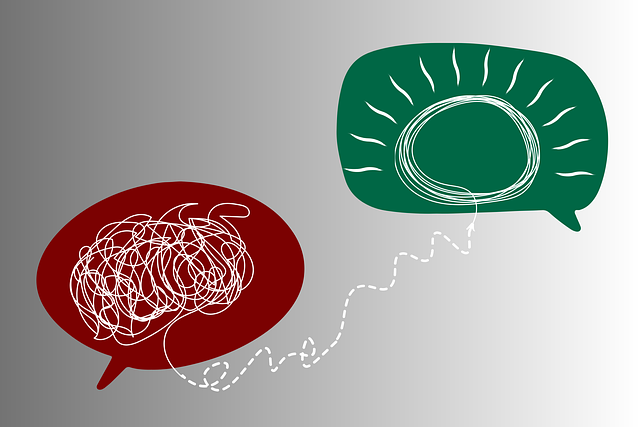Northglenn First Responders Therapy offers specialized training for crisis intervention teams (CITs), empowering first responders to manage high-risk situations effectively and promote long-term mental well-being. Their programs focus on empathy building, mental wellness coaching, trauma-informed care, and self-care tools, enabling professionals to de-escalate tensions, reduce stress, and improve community resilience. This holistic approach not only benefits individuals in crisis but also enhances the overall mental health policy and advocacy within Northglenn, ensuring resources are readily available for those who need them.
“In today’s complex social landscape, effective crisis intervention is more crucial than ever. This article explores the vital role of Crisis Intervention Teams (CITs) in community safety, with a specific focus on Northglenn First Responders Therapy—a pioneering program that equips professionals to handle unseen challenges. We’ll delve into key components of successful CIT training, highlighting its benefits and impact. Understanding these programs is essential for preparing responders to make a tangible difference during crises.”
- Understanding Crisis Intervention Teams: A Vital Resource for Community Safety
- Northglenn First Responders Therapy: Training for the Unseen Challenges
- Key Components of Effective Crisis Intervention Programs
- Benefits and Impact: Preparing Responders to Make a Difference
Understanding Crisis Intervention Teams: A Vital Resource for Community Safety

In many communities, Crisis Intervention Teams (CITs) are a vital resource for ensuring public safety and well-being. These specialized teams, often composed of trained first responders, mental health professionals, and community members, play a crucial role in managing and de-escalating high-risk situations. Northglenn First Responders Therapy is a prime example of how such programs can empower individuals to handle crises effectively while fostering a culture of care and support within the community.
CITs offer a proactive approach to addressing mental health challenges, focusing not just on immediate crisis resolution but also on long-term self-esteem improvement and positive thinking. By integrating these teams into local communities, cities like Northglenn can enhance their mental health policy analysis and advocacy efforts, ensuring that resources are readily available for those in need. This holistic approach not only improves individual outcomes but also contributes to a more resilient and cohesive community overall.
Northglenn First Responders Therapy: Training for the Unseen Challenges

In communities like Northglenn, where emergency responders frequently encounter traumatic events, specialized training programs are vital to prepare them for the unseen challenges they face daily. The Northglenn First Responders Therapy program offers critical support and skill development for professionals aiming to enhance their resilience and mental wellness. This initiative recognizes that first responders often bear silent burdens, and provides tools to navigate stress reduction methods effectively.
Through interactive sessions, the program incorporates Mental Wellness Journaling Exercise Guidance, enabling participants to process their experiences and emotions in a safe, supportive environment. Furthermore, it emphasizes Risk Management Planning for Mental Health Professionals, equipping them with strategies to prevent burnout and maintain optimal mental health while providing assistance to others.
Key Components of Effective Crisis Intervention Programs

Effective crisis intervention team training programs are built on a strong foundation of key components that ensure preparedness and positive outcomes in high-stress situations. One of the cornerstone elements is empathy building strategies. Training programs that prioritize teaching First Responders, like those at Northglenn First Responders Therapy, to actively listen and understand the emotional nuances of individuals in crisis can significantly de-escalate tense scenarios. This involves both verbal and non-verbal communication skills to create a safe and supportive environment.
Additionally, integrating mental wellness coaching programs into crisis intervention training is increasingly vital. These programs not only equip First Responders with tools to recognize signs of mental distress but also provide strategies for self-care, which are essential given the high-stress nature of their work. The development of these skills ensures that crisis intervention teams can offer comprehensive support, fostering a culture of resilience and well-being within the team and the community they serve.
Benefits and Impact: Preparing Responders to Make a Difference

Crisis intervention team training programs prepare responders to effectively assist individuals facing severe emotional distress or mental health crises. These programs equip participants with crucial skills in crisis assessment, de-escalation techniques, and evidence-based interventions. By enhancing their understanding of trauma-informed care, Northglenn First Responders Therapy professionals can offer compassionate support tailored to each individual’s unique needs.
The benefits extend far beyond the immediate incident. Regular training sessions promote stress reduction methods, foster better coping mechanisms, and enhance overall mental wellness. This preparation enables first responders to make a tangible difference in their community by providing timely, effective crisis intervention guidance. Through continuous learning and practice, these teams become more resilient and better equipped to navigate complex situations, ultimately contributing to improved outcomes for those in need.
Crisis intervention team training, as demonstrated by Northglenn First Responders Therapy, is an invaluable asset in equipping professionals to handle mental health crises. By focusing on key components such as cultural sensitivity and evidence-based practices, these programs empower responders to make a significant difference in their communities. The benefits extend far beyond individual response times; they foster safer, more supportive environments for everyone. Effective crisis intervention training is not just about preparing for the unseen challenges—it’s about revolutionizing how we approach community safety and well-being.














